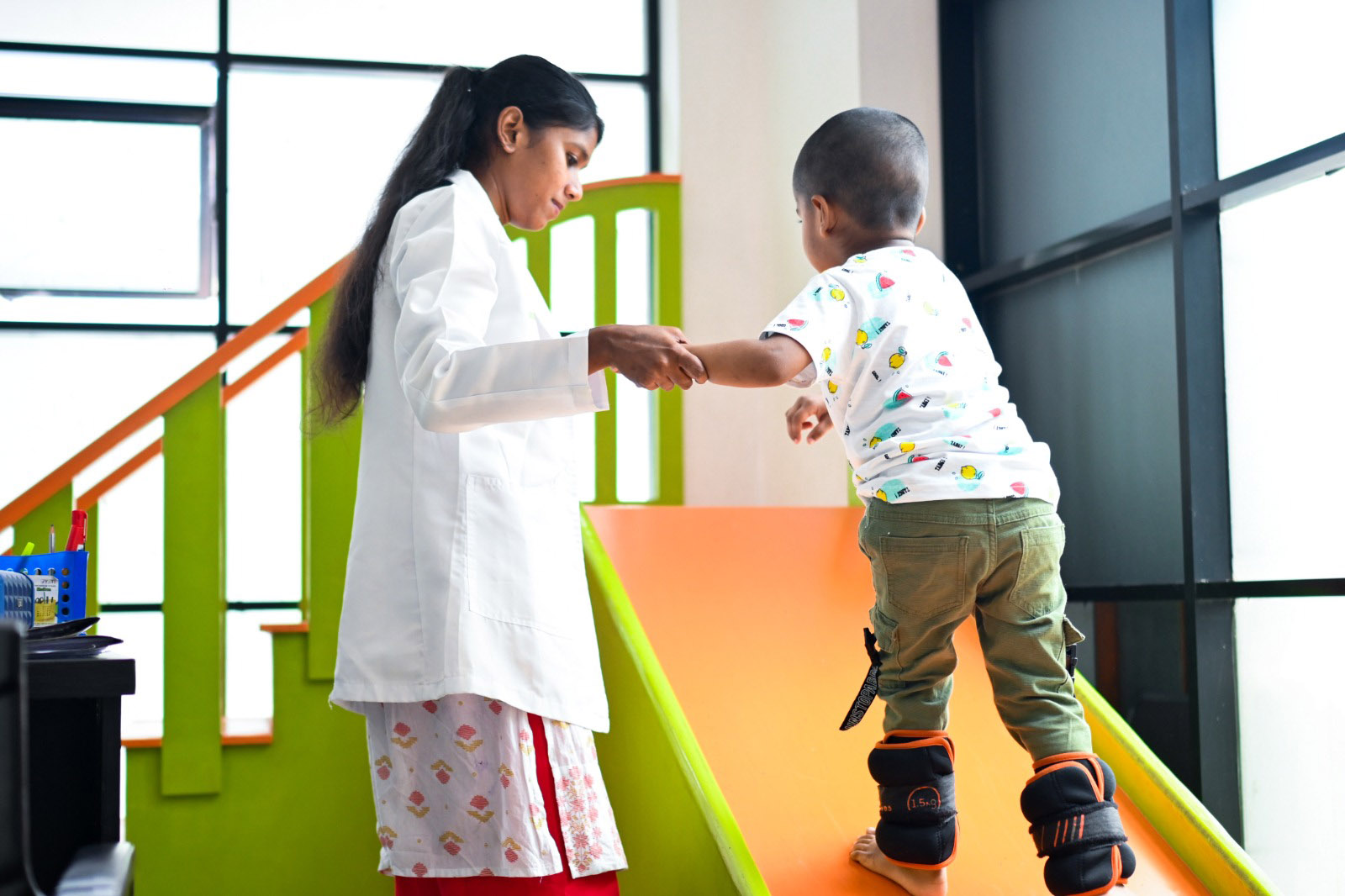OCCUPATIOPNAL THERAPY
Everyone has occupations.... From the toddlers whose occupation is to play and learn to develop important skills, to adults whose occupation is to engage with family and friends and manage their home.
If you are a child with a neurological condition or an adult recovering from an accident or injury, Occupational therapy can help you learn new ways of doing activities and adapt to equipment or materials used every day.
Occupational therapists at Parrot child developmental center are skilled therapists trained to complete both standardized and informal assessments in a variety of areas including hand writing, fine motor skills, gross motor skills and sensory processing issues.
We offer assessment, education and intervention strategies for children, develop and deliver evidence based intervention plans through direct intervention and consultation with parents, professionals etc

What is OCCUPATIONAL THERAPY?
Occupational Therapy is a profession concerned with promoting health and well being through occupation. The primary goal of occupational therapy is to assist people to participate in the activities of everyday life and enhance the quality of their lives.
OCCUPATION THERAPY IN PAEDIATRICS
Life was about running with the dog, playing tag in the woods, climbing trees, playing ball in the alley, and pretending to be a superhero or a princess. Adults often have fond memories of their childhood days. As children, however, they did not think about the reasons they engaged in play activities or why particular activities were enjoyable—it was just fun! Occupational therapists, however, have a different perspective on play. Occupational therapy practitioners are concerned not only with the child’s performance in everyday activities but also the environmental influences that enable a child’s engagement and participation in those activities.
What are the Peadiatric conditions we Occupational Therapist Works with?
- Congenital Heart Disease
- Neonatal Respiratory Problems
- Juvenile Rheumatoid Arthritis
- Cerebral Palsy
- Seizure Disorders and Epilepsy
- Muscular Dystrophies
- Neural Tube Defects and Spina Bifida
- Hydrocephalus
- Intellectual Disabilities
- Autism Spectrum Disorders
- Pervasive Developmental Disorders
- Attention Deficit–Hyperactivity Disorder
- Learning Disabilities
- Sensory Processing Disorder
- Developmental Coordination Disorder
- Down Syndrome
What are the performamce areas we Occupational Therapists work on?
- Application of Motor Control/Motor Learning to Practice
- Evaluation and Intervention to Develop Hand Skills
- Sensory Integration
- Visual Perception
- Psychosocial Issues Affecting Social Participation
- Interventions and Strategies for Challenging Behaviors.
- Feeding Intervention
- Activities of Daily Living
- Play
- Prewriting and Handwriting Skills
- Influencing Participation Through Assistive Technology
- Mobility
The components and skills we assess:
- Posture
- Coordination (Gross Motor)
- Coordination (Fine Motor)
- Muscle Tone (Note Asymmetries)
- Range of Motion
- Presence of Primitive Postural Reflexes
- Delayed Automatic Reactions
- Oculomotor Abilities
- Strength
- General Endurance
- Response to Physical Handling
- Response to Being Moved
- Sensory Processing
- Cognition Skills
- Perception Skills
- Academic Skills
- Activities of Daily Living
- Behavioural Issues
- Emotional and Psychological Development
- Social Participation
